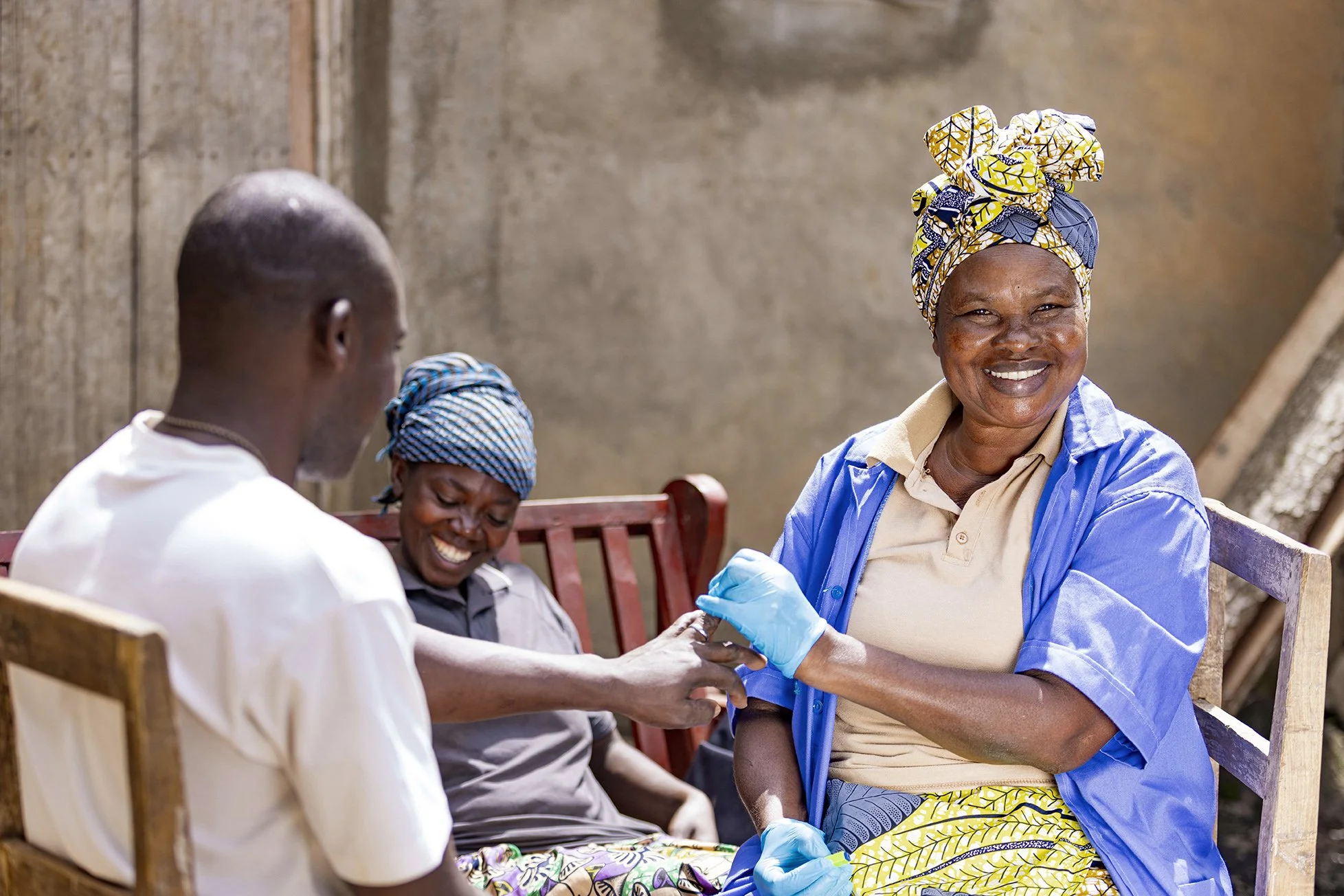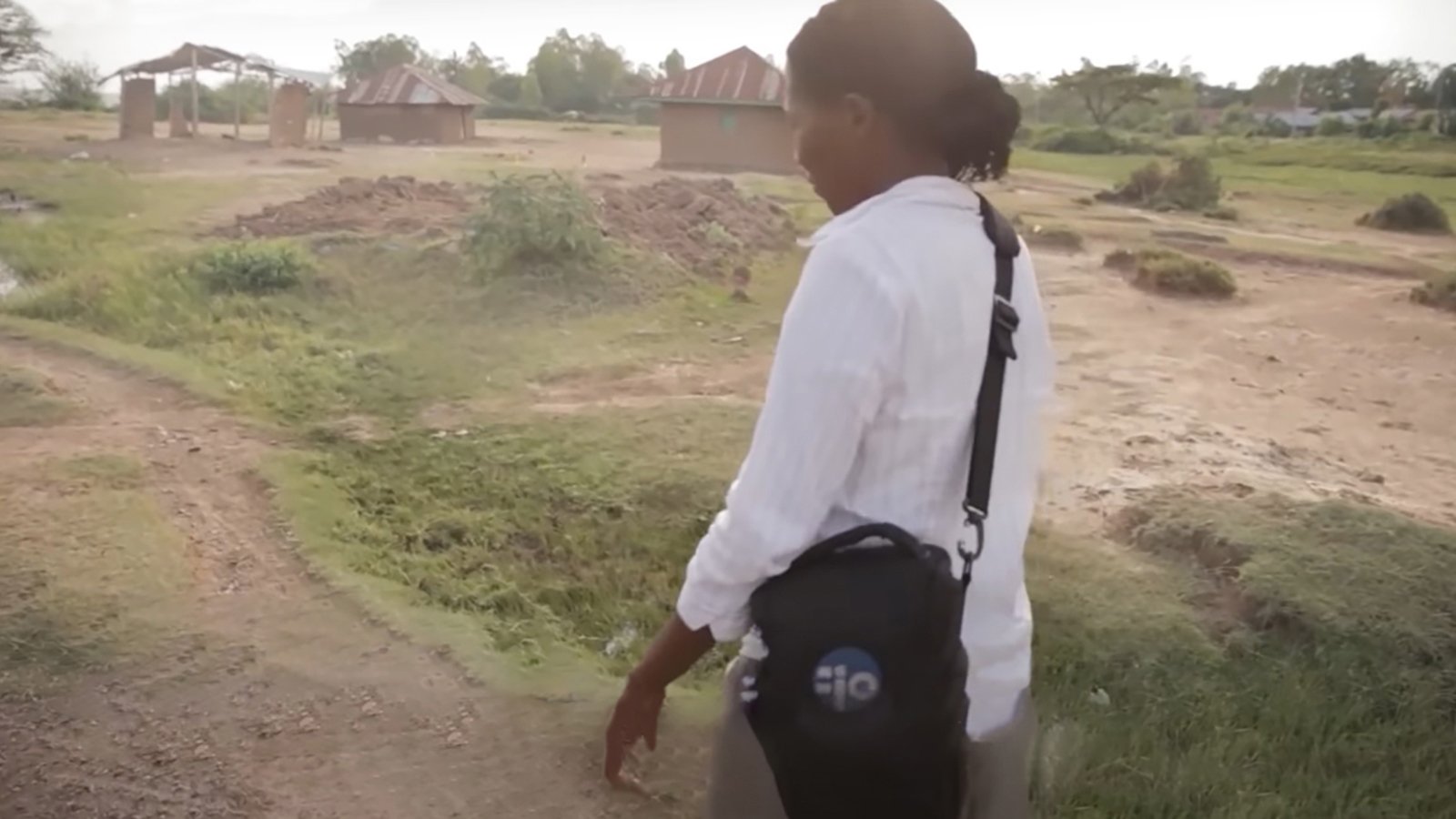1.

Without Fionet, patients walk to their Electronic Medical Record in a medical center. With Fionet, the Electronic Medical Record walks to them.
In patients’ homes, the community healthcare worker’s device already has data for everyone in that home.
Fionet is linked to the national registry and any other relevant databases authorized.
The patient record is updated and ready for the next encounter, whether at home, health post, or health center.
● Digitized Primary Care in the Community
The Rwanda Ministry of Health is a leader in digitizing primary healthcare in the community. The Ministry selected the Fionet Platform as their electronic Community Health Information System.
Per a recent Global Fund update: “eCHIS digitizes the work of the vast network of community health workers. This means frontline health workers have patient data, updated records, and the latest information on diagnosis at their fingertips. Investments in digital health solutions are transforming health systems and helping to make patient-centred care accessible to all.”
2.

Delivers MoH protocols to the frontline, resulting in upgraded assessment, testing, treatment, referrals, and data capture.
Interacting with these tools upscales the proficiency of healthcare workers as they deliver care.
Fionet Suite is often described as a performance equalizer.
Its purpose is not to make best practices better, but to make them consistent.
● Primary Care Modules and Remote Supervision
Two of Fionet Suite’s community health modules in action:
A CHW using the Growth Monitoring module to measure a child’s MUAC (mid-upper arm circumference)
A CHW using the Pneumonia Assessment module to measure a child’s respiration rate.
● HIV Management
To better manage 8 million HIV patients, South Africa sought a tool to investigate how to move high-quality HIV testing and treatment to the community. In South Africa, HIV testing involves an algorithm of three different, sequential rapid tests. Unaided and frequently without supportive supervision, community healthcare workers would be challenged to consistently:
Perform this algorithm, perform the tests, and interpret the tests correctly.
Put the patient on the right treatment and referral plan.
Rapidly upload correct data.
With Fionet, South Africa’s National Health Lab Services proved this can be done well. For example:
Diagnostic results performed manually by expert lab techs at Wits were compared with Fionet’s automated rapid testing capabilities.
Their findings - published in BMC Infectious Diseases - demonstrated that Fionet’s AI was 99.5% concordant with the diagnostic result by the expert lab tech.
3.

Transforms the accuracy of processing, interpretation and data-capture of community testing.
Quality case management requires accurate diagnostics.
Fionet removes points of friction in the process.
Proficiency of peripheral health workers is optimized.
● Airport COVID Testing
When COVID hit, the Canadian government used Fionet mobile health IT platform to do point-of-need testing at Canada’s busiest airport. Fionet high-volume rapid test processing technology brought pre-boarding testing time for a planeload down from 4 hours to 30 minutes.
In addition, Fionet IT infrastructure served as the backbone
For PCR testing also done at the airport
For all data flow, from registering for a test and to delivering results to the central lab
For communicating results to passengers’ cell phones
The Canadian Ministry of Innovation, Science, and Economic Development used this project as the basis for its formal recommendation on future pandemic preparedness for Canada.
● Reduced RDT Error Rate
For certain clients, Fionet’s AI algorithms and automated quality controls documented and reduced rapid diagnostic testing errors — processing, interpretation, and data capture — by a factor of 10 within the first six weeks of use.
4.

Produces real-time insights for remote managers — anytime, anywhere.
Frontline healthcare workers believe their job is to deliver healthcare, not so much capture data.
With Fionet, data capture is automated: Each moment of care delivery is a moment of data capture.
The data includes geo-temporal, clinical, epidemiological, operational, business, and proficiency data.
● Dengue Outbreak
When the Colombian city of Armenia was afflicted by a dengue outbreak, community healthcare workers were sent house to house to do rapid dengue tests with Fionet. Because of real-time data capture, the result was a near instantaneous high-resolution heat map of dengue positivity rates.
This led MoH managers to pinpoint several mosquito breeding grounds that, when drained, ended the outbreak.
● Malaria Management
The Democratic Republic of the Congo MoH carried out a study of malaria rates in several provinces using Fionet. Fionet revealed that malaria rates were significantly lower than the corresponding data in DHIS2 — on average, 40%.
These results were somewhat unexpected to MoH, provincial governors, major global aid funders, and even a multinational mining company operating in these provinces.


